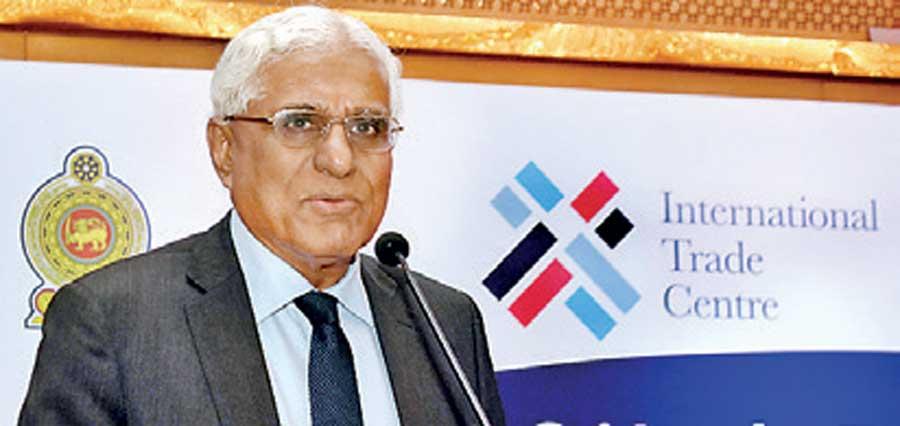01 Oct 2019 - {{hitsCtrl.values.hits}}

Dr. Indrajit Coomaraswamy
Pic by Nimalsiri Edirisinghe
Although global value chains (GVCs) have offered developing countries with opportunities to integrate into the global economy, the delays in the World Trade Organisation’s (WTO) reform agenda have hindered the wider participation of small and developing nations in GVCs.
“In theory, the spread of GVCs should make it easier for small and developing countries to participate in trade, as the break-up of the production process makes it feasible for a specialised firm to find niche markets. Yet, these countries are underrepresented in GVCs.
Due to the international system of patents and the monopoly power held by some technologically innovative firms, developing countries feel their development efforts are being hampered by the high prices charged for borrowed technology,” Central Bank Governor Dr. Indrajit Coomaraswamy said.
He made these remarks delivering the keynote speech at the EU-Sri Lanka Trade Related Assistance Seminar themed ‘International Trade Agreements: Policy Options for Sri Lanka’, in Colombo, last week.
He noted that the WTO has failed in delivering the promised pro-development changes, risking sidelining of the developing nations by the narrowing economic and political interests of global powers.
“The Doha Development Round was launched in the aftermath of 9/11 and was expected to provide a boost to global sentiment and confidence. The word ‘Development’ quickly fell out of favour and the initial promises were ignored at an early stage. The waning of the role of the WTO and multilateralism, more generally, is a major concern, particularly for smaller countries,” he went on to say.
However, Dr. Coomaraswamy noted that there are opportunities emerging for developing countries with the rise of cross-border e-commerce platforms and with the growth in access to information and communication technology.
“There is evidence that the Internet reduces search costs, facilitating more exchange and increasing firm productivity,” he said.
In particular, he pointed out that new technological developments such as robotics, cloud computing, big data and the Internet of Things (IoT), are beginning to reshape and further transform GVCs.
Despite the aggregate gains from such developments, he outlined that broad and comprehensive adjustment policies are required as automation and digital technologies could cause disruption and widen the existing disparities across regions and individuals.
Sri Lanka’s current participation in GVCs remains considerably low compared to the other leading exporters in the Asian region, such as Vietnam, due to both domestic and external constraints. (NF)
14 Nov 2024 3 minute ago
14 Nov 2024 44 minute ago
14 Nov 2024 52 minute ago
14 Nov 2024 3 hours ago